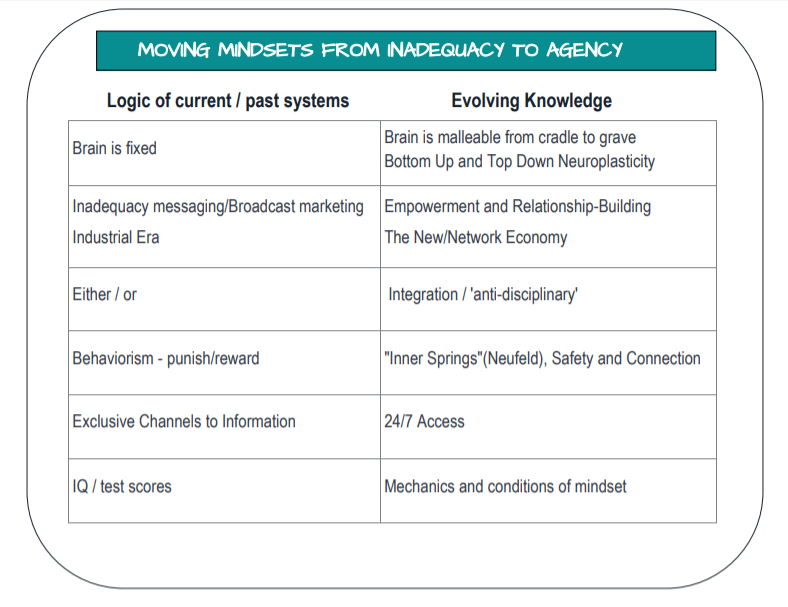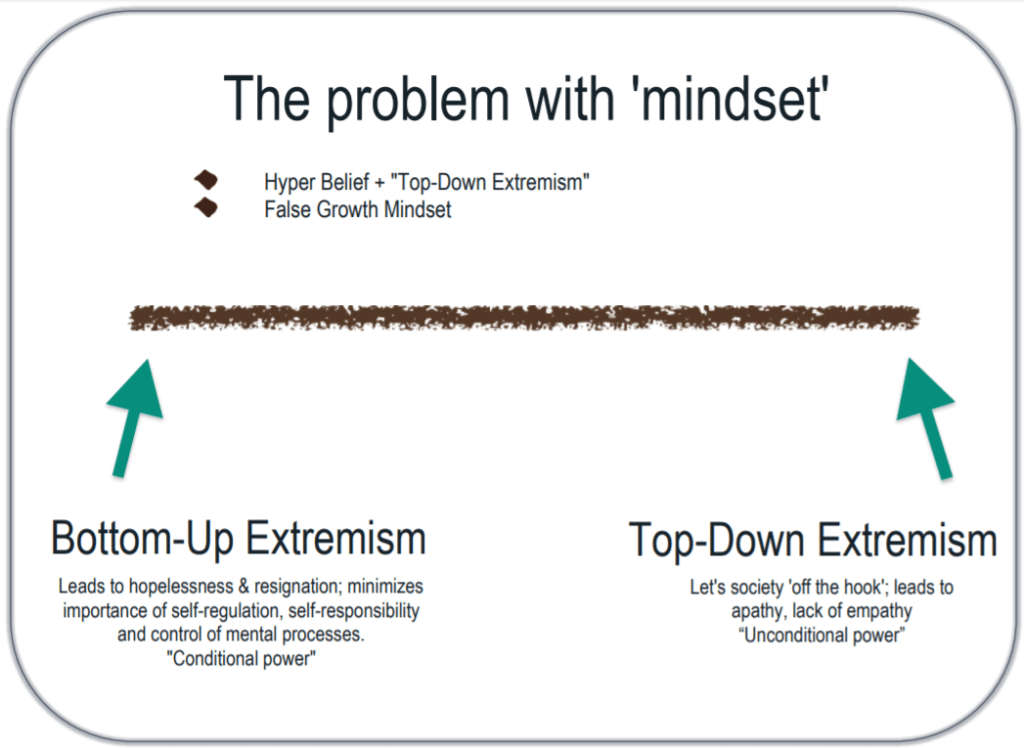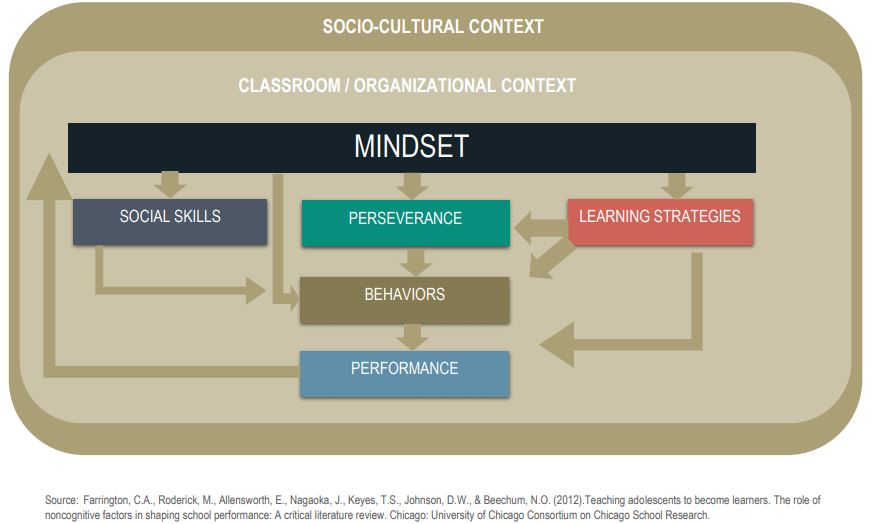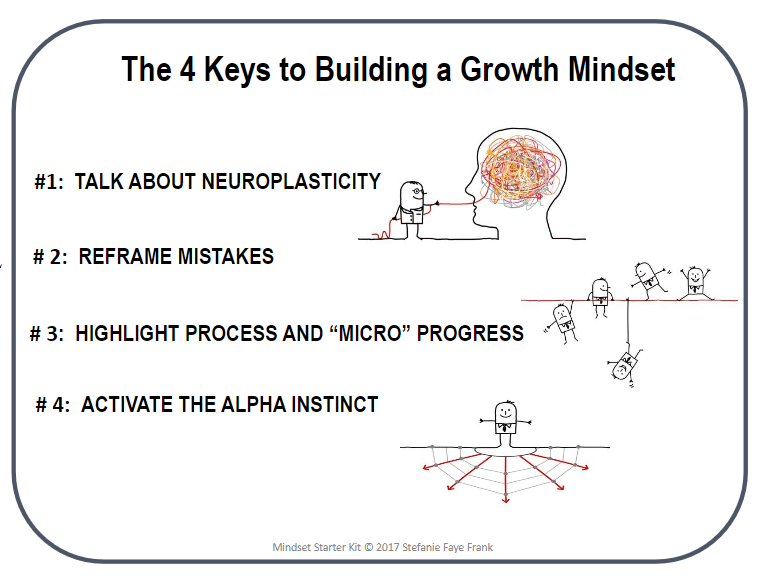From Outdated Ideas to Evolving Wisdom
In this lesson we’ll explore some of the myths + outdated stories we have been using in our education system, businesses and overall understanding of human behavior. Throughout the course, we’ll be learning how to move away from these outdated systems so that we can help more people use more of their brain in highly evolved and intentional ways.
**CORRECTION!! Please accept my apologies… The name I mention in that “learning how to learn” is the world’s most important skill is from Kevin Kelly, author of “What Technology Wants” and “New Rules for a New Economy”.
(I mentioned David Kelley, the founder of the design firm IDEO and professor at Stanford University. He wrote, The Art of Innovation – and has said similar things,but I was referring to Kevin Kelly’s book!)
Download the Outdated to Evolving Chart
[tab:EXTREME BELIEFS]
Extreme Beliefs About Growth Mindset
In the last section, we went briefly over the concept of growth mindset. Let’s do a quick review of it here:
A person with a growth mindset believes that talent, potential and intelligence can be developed with effort, strategies and processes. In this course, we are including growth mindset to also cover social emotional skills. These are skills that we can also change and develop through intention, effort, self-reflection and intentional action.
These ‘intangible’ (aka not-measurable or standardize-able skills) are essential to thriving in today’s world because they actually create internal states that are needed in order for us to have access to the areas of the brain needed to build meta-processes such as growth mindset. We can’t have one without the other.
But there are also some extreme points of view about growth mindset that can lead to feelings of hopelessness and overwhelm about trying to have the ‘correct’ mindset. That’s what we’ll look at in this video.
Here’s a visual to help you explain the extreme points of view coming up when people talk about growth mindset:
[tab: PERFORMANCE & PERSEVERANCE]
In the last section, we looked at some of the challenges and frustrations that can come up when we talk about the idea of growth mindset. Here, we’re going to see how empowering and powerful the idea of mindset can be.
Here are three key concepts to think about:
- Neural pathways get built based on limited exposure to limited, repetitive ‘data’
- Mindsets are learned (not ‘innate or ‘truth’; beliefs (mindsets/attitudes) are learned – they are simply thoughts we have had so repetitively that they filter our perception until we believe what we think is the ‘truth’)
- Mindsets are stronger predictors of various ‘success’ factors compared to IQ, test scores + technical skills COMBINED
Chart from Chicago Consortium for School Research
[tab:THE 4 KEYS]
The Four Keys to Building Growth Mindset
Now that we are aware of some of the challenges of growth mindset, as well as its power, let’s explore 4 critical ingredients needed in order to inspire and activate growth mindset in ourselves and others.
Remember this acronym: L.I.T.
Learn
Internalize
Teach
This is to help you remember that in order to become authentic teachers of growth mindset, we must recognize it in ourselves so that we can have a deeper understanding, and also give personal, real examples of how it can work.
So as we go through these 4 ingredients, it can be helpful for you to think about something in your life you have either:
a) learned and mastered; or
b) are in the process of learning
And then see how these steps can apply to your own process. This will help you see growth mindset in a more explicit way so that you can explain it more easily to others.
That’s it for Unit 1! Next up: Unit 2 – Neuroplasticity
Unit 1



